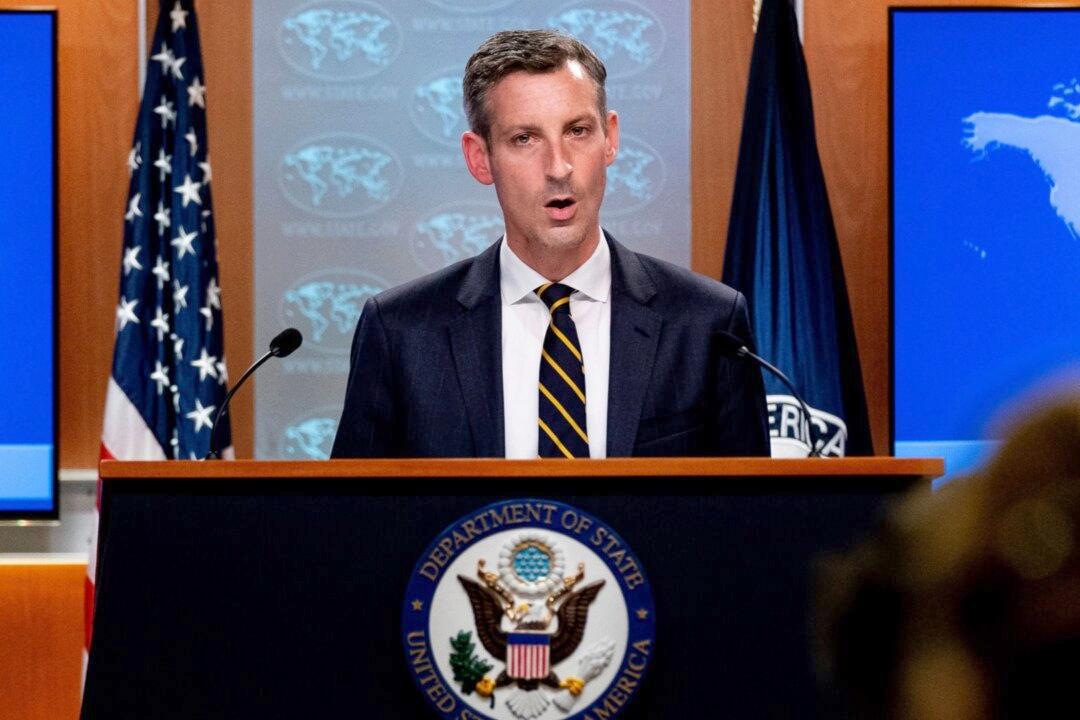Amid intense criticism and scrutiny over the military and intelligence community’s failure to detect and prevent the entry of a Chinese spy balloon into U.S. airspace, even after at least three previous incursions of a similar nature, a spokesman for the State Department has tried to portray the Biden administration as taking a proactive approach, sharing intelligence widely with U.S. allies in an effort to thwart further subversion by Beijing.
Speaking at a press conference on Feb. 6, State Dept. spokesman Ned Price described the security breach that the balloon’s entry represents as one facing not just the United States but many nations.





